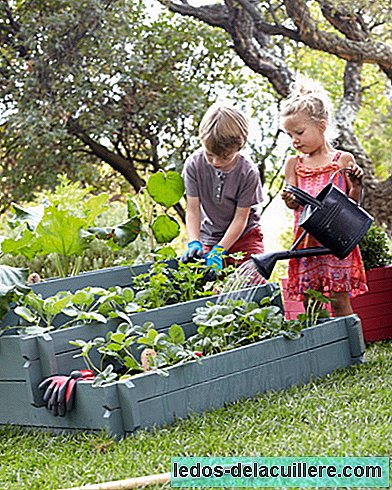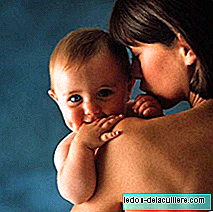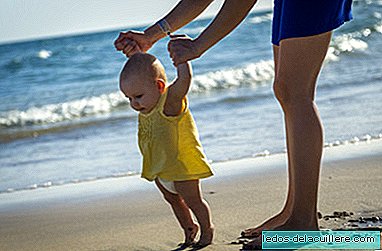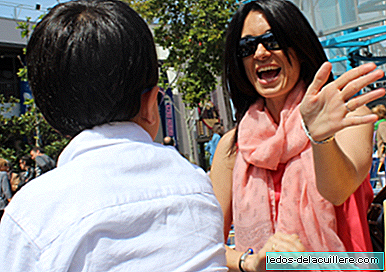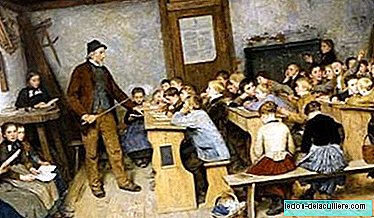
By the dates in which we are sure that many parents are in search and capture (like us) of the school to which their son or daughter will attend from September of this year.
To When choosing the school there are several factors to consider (or not) by the parents. With this post I wanted to show what I consider most important:
Ideology
We come from an eminently religious Spain, however, the current moment is very different and a growing cultural diversity is added to the loss of these beliefs. We must consult what is the position of the school in this regard (if they celebrate religious holidays, how, if they do the subject of religion, if they do not do it ...) to decide. In those whose religious ideology is evident (Carmelites, Jesuits, Salesians, etc.) better not to ask ... you know.Distance from home
The closer he is to the house, the less displacement problems for everyone and less problems for the child when he is able to go to school alone tomorrow.Dinning room
I would say that everyone has it, so for parents who need it, the assessment should be about the quality of the food and the care they receive. There are schools with their own kitchen and others that work with catering (they bring the food already made). At the quality level it will always be better to be cooked in the same school. We must also assess how they divide the children at lunchtime (if they do). Ideally, those 3 years old eat separately, because they need more constant attention and a climate as calm as possible. The dining room is a resource for parents who need it. It is preferable, if possible, to eat at home. It involves making two more trips but you offer children the possibility of recharging the batteries of contact with mom and / or dad and return to a family environment where they feel emotionally recognized, safe and accompanied again. So we avoid spending 8 hours away from home, which is not recommended for such young children.Work methodology
For me the most important. We must value what we want for our children because not all schools work the same way. In some they try to instill habits in a more or less rigid way, with the use of books or files and trying to keep the children sitting doing their homework, they aim at children learning some subjects with specific results, which between four and five years learn to read and even learn English and computer science. Others, on the other hand (I opt for these), even though they are public, work without books, base the learning on the game and teach them based on what the children demand, are more flexible and accept the maturational differences of each child. The curiosity of the little ones is infinite, and there is no better way for them to learn than to satisfy their curiosity without sticking to subjects that probably cannot or need to learn. The philosophy of these schools is that a child goes there to grow as an individual person capable of thinking and being responsible, so they spend more time in the relationship with the environment and between peers than to learn subjects. Many parents (I am seeing it in cabbage visits) demand English from 3-4 years. In some schools they do not (and I add to their opinion) because the great capacity for learning that children have is not for us to fill them with subjects or languages (which they later do not practice, because parents do not know how to speak it) but for that learn to live, to relate, in short, to learn to be.In many of the most innovative schools, children begin to learn to read later, so comparing them with those of other schools, parents often consider that their children are behind (because of the vision we have of schools as a learning center for matters and the competitiveness that we instill in them), however when they start reading they do so from the desire to learn and, more importantly, they do at the moment they are able to understand what they read.
In this way, reading is a new door to the acquisition of information that satisfies their curiosity and not a lot of symbols that “I know how to say one after another” (when they learn at 4-5 years).
My personal feeling is that we worry in excess of the educational level that they will get without asking us the key question: What is the use of going to school? What do I remember from what I learned in school?
The answer to the second is: "Almost nothing." It is estimated that adults remember between 10% and 30% of what they taught us. Then, the answer to the first question can only be: "To learn to live in society."
The current learning search model is assuming more than 40% of school failure in Catalonia (and I imagine that it will be close in the rest of the state), which is said soon. That is why I join the car of the schools that try to make children grow as people and that they learn the subjects by enhancing their curiosity.
The Finnish model, which we already talked about in Babies and more, is very similar to this work philosophy and the results are unquestionable. They have the best level in Europe (you can read a highly recommended report on education in Finland here).
Tomorrow, since I have extended quite a bit in this fourth point, I bring you the rest of the important factors at the time of choose the school for our children.



